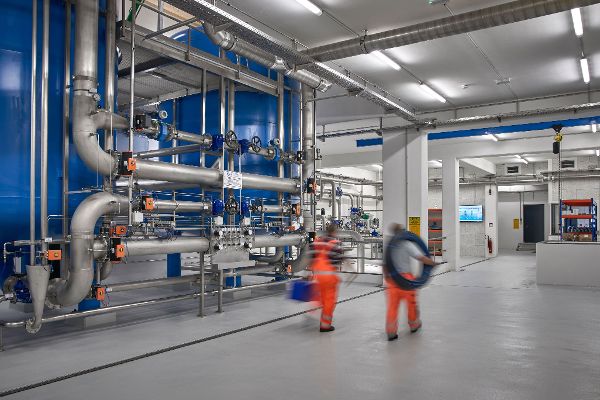Supply and use of water in Austria

Water is needed in households, in industry and trade, and in agriculture.
Drinking water supply for the population
Almost 100% of the Austrian drinking water comes from ground and spring water. Approx. one-half of this amount is provided by groundwater. The valuable water resources are well protected by the Austrian Water Rights Act (Österreichisches Wasserrechtsgesetz).
In Austria, some 90% of the population, i.e. 7.9 million inhabitants, are supplied by central water supply facilities; the total length of the pipeline network used is around 78,500 km.
Some 5,500 water supply companies (municipal facilities, district water boards, cooperatives) supply the population with high-quality drinking water that complies with strict legal requirements.
The remaining 10% of the population obtain their drinking water from their own domestic wells and springs. This field doesn’t fall within public responsibility. It is incumbent upon their owners to monitor water quality and the well's condition, etc. regularly. For information on the monitoring of domestic wells and springs, please see the homepage of the Federal Ministry of Health.
How is drinking water used in Austria's households?
Some 22% are used for showering and bathing and 25% for the toilet flush. In contrast, a mere three percent are used for drinking and cooking!
About one third of the water used in Austria goes to households. Almost two thirds are used in industry. Approximately 5 percent are used by agriculture.
Water in industry and trade
For industry and trade, water is often a prime factor in the choice of location and production. Recent decades have revealed that, also with bulk consumers, saving water has increasingly become a necessity. Apart from ecological aspects this was mainly due to the economic pressure of supply and disposal costs.
First of all, these cost-cutting measures were based on the conversion of production processes, and secondly on the recycling of wastewater (process water). The measures taken in industry and trade have resulted in a sustainably reduced impairment of water quality in recent decades. The clearest expression of this trend is the consistently good quality of our rivers.
Water in agriculture
Water is a crucial factor of production in agriculture. Apart from the supply of rural families with drinking water of good quality, the existence of sufficient water supplies plays also a decisive role for plant growth, for watering animals, and for the cleanness and the hygienic condition of farms.
Agriculture carries a high responsibility for our water reserves in terms of land management and in terms of the use of potentially water-polluting substances. Subsidies are of major importance in their interaction with laws protecting groundwater.
Restrictions and regulatory requirements on farming are promoted in the interest of preventive water protection. The Austrian Agri-environmental Programme (OPUL = Österreichisches Programm für eine umweltorientierte Landwirtschaft) promotes measures such as organic farming, the reduced use of fertilisers and plant protection products, and greening. In regions with high nitrate levels in groundwater the Federal Provinces have stepped up their extension services for water and environmental protection.